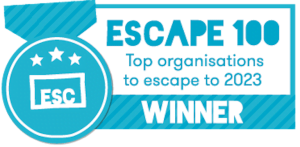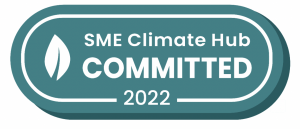The Climate Justice Playbook for Business provides insights, guidance, and case studies of companies that are seeking to advance climate justice in their operations, supply chains, and in the communities they impact.
The new resource created by B Lab, the COP26 Climate Champions Team, Provoc, and the Skoll Centre for Social Entrepreneurship at the University of Oxford is a practical guide that will help business leaders understand the intersection of climate action and social justice and advance a justice-centered approach to climate action.
In this article:
What is Climate Justice?
Climate Justice is the recognition that climate change is a human-made crisis that has primarily been wrought by those with economic power and privilege, while the effects of climate change have a disproportionately negative impact on the historically marginalised and underserved – primarily people of colour and low income communities around the world.
Climate Justice means advancing climate solutions that link human rights and development in a human-centred approach, placing the needs, voices and leadership of those who are most impacted at the forefront.
Climate Justice is a complex, intersectional issue that is woven deeply into economies, cultures, and the natural world. For this reason, businesses must approach the complex and intersectional opportunities and challenges of Climate Justice with a multi-dimensional and systems-thinking lens.
In the playbook, you’ll see businesses working with the communities they touch, to listen, to learn, and to work together on solutions to help ensure that these communities are healthier, more economically equitable, and more sustainable.
At this point in the process, none of these businesses has all the answers. But they are all committed to moving forward with a critical idea in mind: In the same way that any truly meaningful climate action places Climate Justice at the centre, any meaningful Climate Justice work is centred in, and led by, those communities and people most impacted.
What is The Climate Justice Playbook?
The Climate Justice Playbook Playbook provides insights, guidance, and case studies of companies that are seeking to advance climate justice in their operations, supply chains, and in the communities they impact.
The Playbook provides insights, guidance, and case studies of companies that are seeking to advance climate justice in their operations, supply chains, and in the communities they impact.
As demands for systems change continue to build, the Playbook calls on the global business community to make a fundamental shift in mindset and behavior, to evolve from extractive and exploitative to regenerative and equity-driven — putting those who are most impacted by climate change at the forefront of driving solutions.
How can you use The Climate Justice Playbook?
The Playbook is practical guide helps business leaders understand the intersection of climate action and social justice, and advance a justice-centered approach to sustainability efforts in their own work.
Through real-world examples, business-to-business advice, and human stories, the playbook shows just how essential it is to center the voices of those most affected if we are to make real progress on climate action.
Few practical guides like this exist to help business leaders understand the intersection of climate action and social justice, or to advance a justice-centered approach to sustainability efforts. And yet, centering people and justice is one of the most important keys to addressing the climate emergency.
Centering climate action in Climate Justice

Consciously centering climate action in Climate Justice requires a fundamental shift in mindset and action — from extractive and exploitive to equitable and regenerative approaches.
On the left side of this wheel you’ll see examples of how the current, broken system perpetuates a cycle of harm and injustice though things like paternalistic, colonialistic and white supremacist modes of thinking.
We must evolve and make a fundamental mindset shift to the wheel on the right: an equitable and regenerative approach rooted in new power models, that creates sustained social and environmental well-being.
Key takeaways from the Climate Justice Playbook
This is deep, challenging, personal work
We have to set aside conventional ways of thinking and doing to do this work well. The work is non-linear and hard, and must start from within each person. It’s not only a professional journey, but a personal one — rooted in mindfulness, humility and self-awareness.
People & equity must be at the center
Climate justice cannot be just a “lens:” people and justice must be at the center of all climate action and advocacy. We must listen to and take the lead from those most impacted who have been historically at the margins.
We must work together
We need more than businesses simply working alone on their own impact: it’s collaboration and collective voice, awareness, and action that will enable us to solve the climate crisis and create a just, equitable, regenerative future.
There’s no time like the present to get started
You’re not alone if you’re at the beginning of this journey. The Playbook includes stories and insights from businesses who at different points along this journey.
A fundamental mindset shift is essential.
The global business community must evolve its thinking on climate action — from extractive and exploitative approaches that perpetuate a cycle of harm and injustice to equitable and regenerative ones, focused on creating sustained social and environmental well-being.




